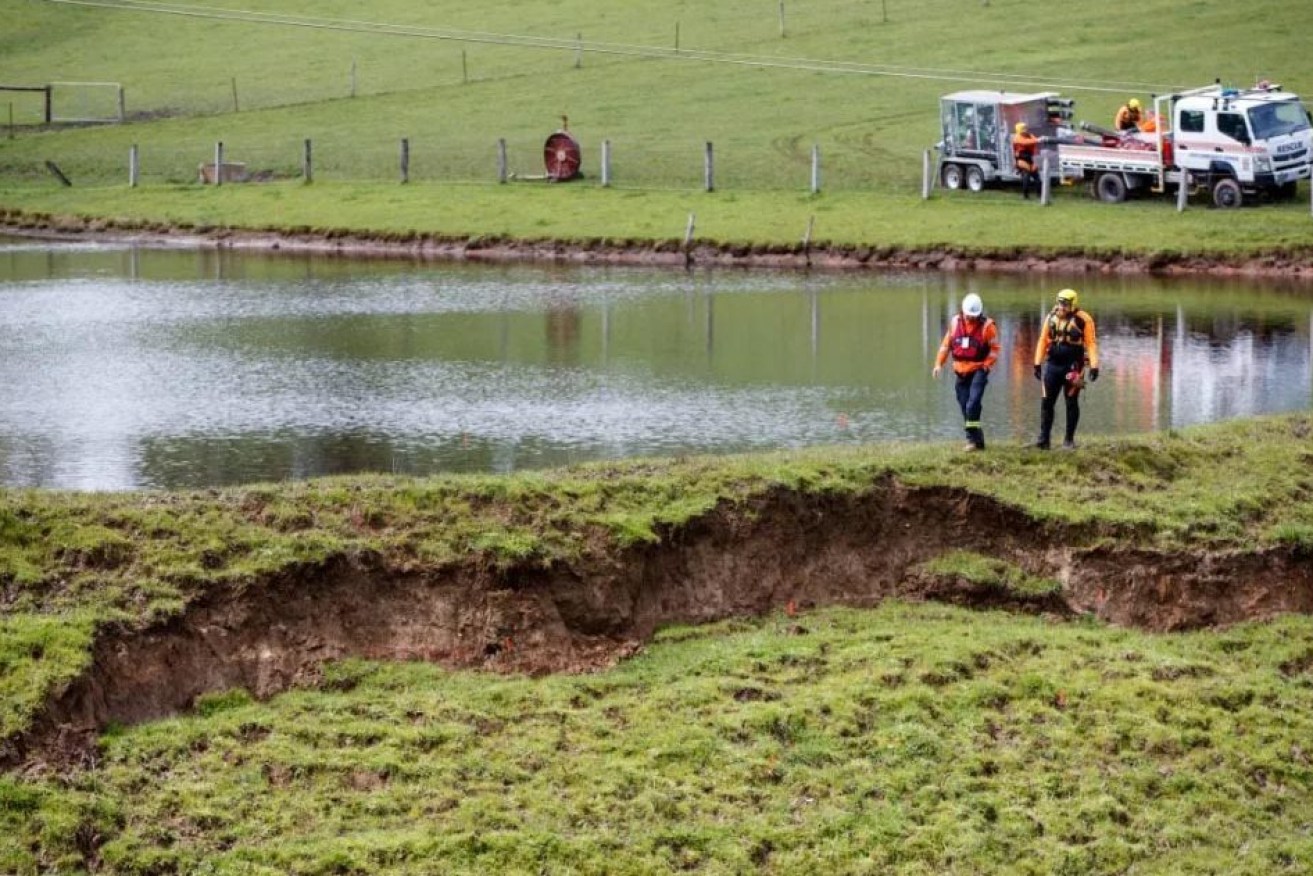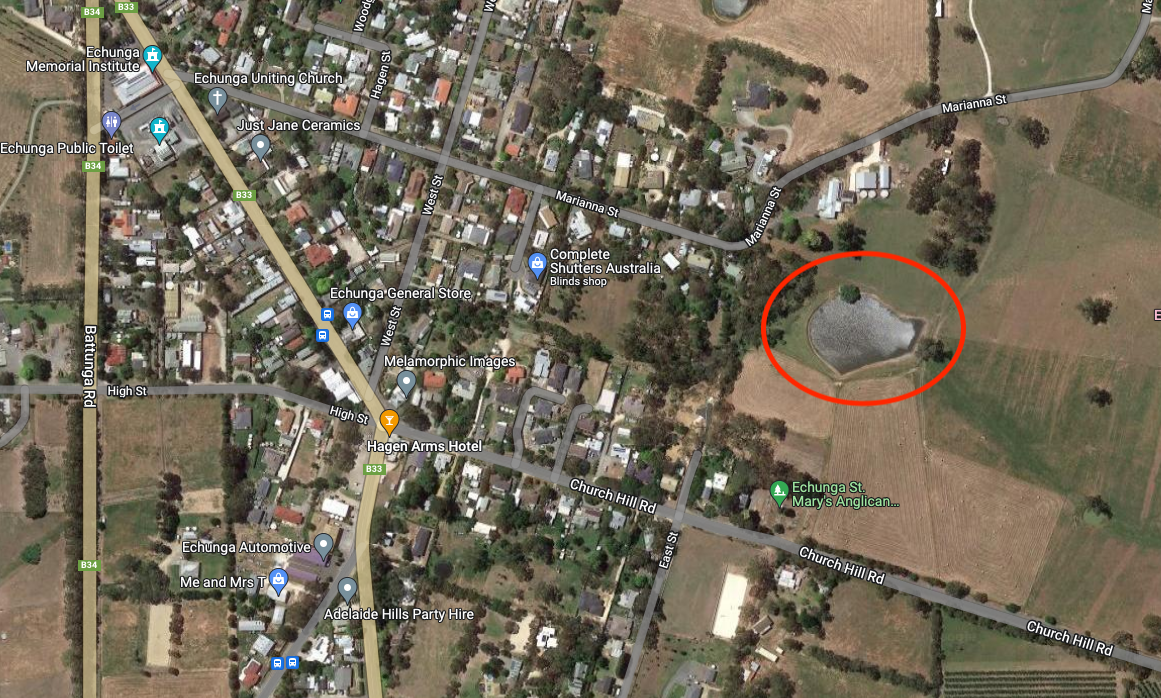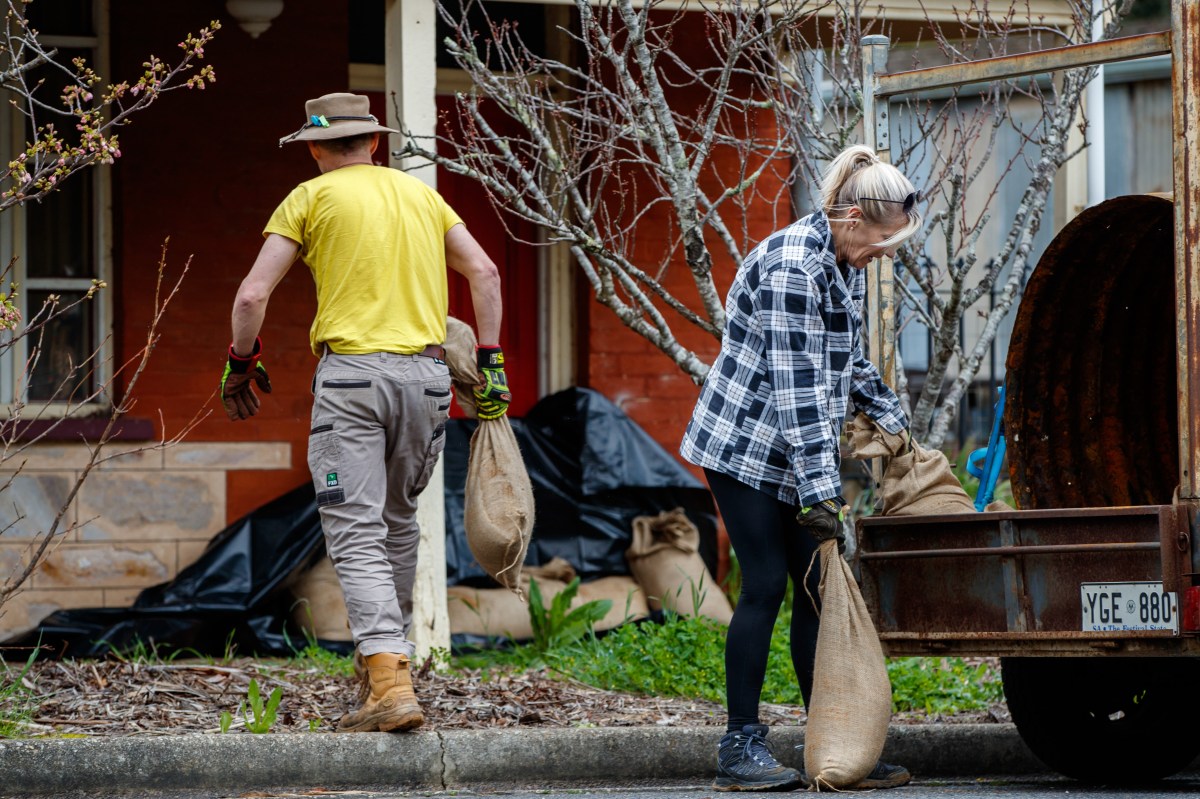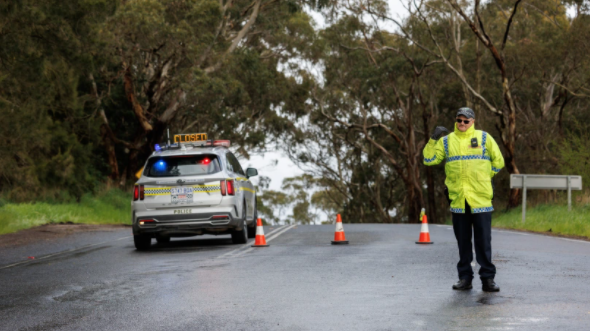Echunga dam emergency over
An Adelaide Hills town’s flood crisis is over, with the State Emergency Service this afternoon declaring a failing dam no longer at risk of inundating Echunga with millions of litres of water.

Emergency workers inspect a collapsing wall which threatened to release water from a private dam into Echunga. Photo: AAP/Matt Turner
Engineers today inspected the dam, on private land on the town’s outskirts, and declared it safe.
The emergency began late Tuesday afternoon when an alarm was raised that a wall of the dam was at “high risk” of collapse.

The dam on the edge of Echunga. Image: Google Maps
While the dam was first estimated to hold about 10 megalitres, or 10 million litres equivalent to 10,000 tonnes weight, the SES today said that the dam capacity was now estimated at between 10 and 14 megalitres.
Emergency crews brought in four high output water pumps to lower the water level. The operation had to be done with care, with water released at a rate that did not exceed the capacity of the town’s drainage system and risk flooding.
Some residents sandbagged as authorities warned that a dam breach would hit the town.

Echunga residents sandbag their home on Wednesday. Photo: AAP/Matt Turner
Access roads to Echunga were sealed off and many residents evacuated their homes and sought shelter at a local sports club, with more than 30 forced to seek emergency accommodation on Wednesday overnight.

A roadblock at Echunga. Photo: Tony Lewis/InDaily
The SES said today that it and other agencies had “identified 80 houses in Echunga which could have been impacted if there had been a rapid collapse of the dam”.
“It is estimated the dam contained between 10 to 14 megalitres of water, roughly equivalent to five Olympic size swimming pools,” it said.
SES incident controller Craig Brassington said this afternoon that more than 100 volunteers helped with the operation.
“The SASES acted swiftly and efficiently when notified of the potential collapse of an earthen wall of the private dam on Tuesday evening,’’ he said.
“Our priority is always the safety of local communities and to minimise potential impacts on life and property.’’




